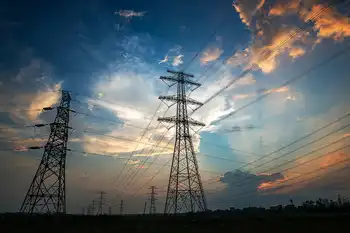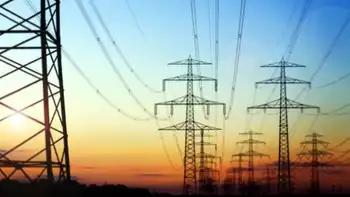Steam leak takes power plant offline
By Associated Press
CSA Z462 Arc Flash Training - Electrical Safety Essentials
Our customized live online or in‑person group training can be delivered to your staff at your location.

- Live Online
- 6 hours Instructor-led
- Group Training Available
Ohio Valley Electrical Corp. shut down all six of the 1,230-megawatt Clifty Creek plant's units as a precaution after a boiler tube failed in one unit and steam began leaking.
No one was injured at the plant co-owned by Columbus, Ohio-based American Electric Power Corp. and other power companies. But AEP spokeswoman Melissa McHenry says the plant near Madison, about 40 miles northeast of Louisville, Kentucky, will stay offline as crews fix the leak and inspect the boiler tubes on all of the units.
Those boiler tubes carry superheated high-pressure steam to the plant's power-generating turbines. McHenry says each of the plant's six boilers have 112 boiler tubes and workers are inspecting all of those for problems.
"You have to take them offline because they're so hot you can't inspect them. They have to take them down and let them cool down enough so they can get in there to do the inspections," she said.
It's unclear when the first of the plant's units will go back online, but they probably will not all return to service at the same time, McHenry said.
The Ohio River plant's absence hasn't left the power grid short of electricity because the recession has reduced demand and there is enough power, she said.
None of the plant's 360 employees have been idled. In fact, some are working overtime to complete the inspections, McHenry said.
"Some people have decided to forgo vacation to help," she said.
Employees not involved in the inspections are doing maintenance work that typically is done when there is a planned shutdown of a unit, McHenry said.
Environmentalists have called the plant one of the Indiana's dirtiest in terms of its air emissions. It began producing electricity in 1955.
The plant was built by a group of power companies to provide electricity to a uranium enrichment facility operated by the U.S. Department of Energy in Portsmouth, Ohio. That facility has since closed and the plant now supplies power to its investors.











